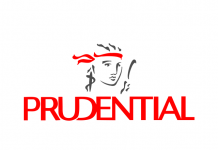Saving for retirement may seem like an afterthought for some. However, financial instability after retirement is a problem that haunts many. It has the potential of becoming a gateway for a plethora of difficulties. Given the importance of saving for retirement, the question that comes up is what is the best retirement saving tool? The usual answer is a 401(k) Plan.
A 401(k) plan is a fixed contribution retirement account that is tax-advantaged and is offered by many employers to their employees. Its popularity can be attributed to the ease and convenience of having contributions automatically deducted from your paycheck. It also expands your retirement possibilities and when you add on the tax savings, it is no surprise why 401(k) is a popular way to prepare for retirement.
Despite its reliability, certain mistakes might come in the way of realizing the true potential of your 401(k) plan and establishing the savings you will need to last through retirement.
Being unaware of your retirement needs
Anticipating exactly the amount of money that you will need to live comfortably is not easy. Lack of awareness about how much you need to set aside to achieve financial stability may have dire consequences for you. However, having certain basic retirement savings goals in place will provide you target around which you can create a framework to achieve those results.
You can start by formulating a simple definition of what financial freedom means to you. For this, take into consideration the kind of lifestyle that you envision after retirement.
While this may vary from person to person, conventional wisdom suggests that the average person will need to maintain around 70 to 90 pre-retirement income to lead a comfortable lifestyle post-retirement. The most important factor while formulating your saving targets is your lifestyle goals. In case you are uncertain about your acceptable income range, you may employ some retirement calculators available online to check if you are on track to achieve a secure retirement.
Doing so would allow you to make any necessary course corrections such as making adjustments to augment your 401(k) contribution rate.
Not paying attention to your plan fees
Retirement accounts are not free, but not everyone is aware that they’re paying fees. These fees can compound and, in some cases, negate the benefits of a 401(k). It was found in a 2015 academic study that out of all the plans analyzed: 16 % of the plans had fees that were so high that they negated the fiscal benefits of investing in a 401(k) plan for a large section of the population.
The average 401(k) charges fees of around 1% of the balance, a study from the Center for American Progress found.
So, if you have $20,000 in your 401(k), you would be paying roughly $200 per year in fees. While this may not seem like much but if you have amassed hundreds of thousands of dollars in your 401(k), such a fee could immediately cost you thousands every year. Similarly, even a fraction of a percent in fees can eat away all your investments and mean thousands less in retirement.
It can be difficult to ascertain what you’re paying in fees. The first thing that you should do is to speak with your plan administrator or human resources department. It will enable you to understand your plan and investment selection fees.
You may find several types of fees listed in your statements but the expense ratio is probably one of the most important figures to consider. It indicates the percentage of your account’s balance that goes towards fees. If you are stuck paying extraordinarily high fees, it may be advisable to consider switching to a different plan or account.
However, if you’re receiving matching contributions from your employer, it would be better to contribute enough to your 401(k). It will help you to earn the full match as the money that you will receive from your employer would outweigh any high fees.
Borrowing or withdrawing from your 401k
People often withdraw money from their 401(k) for a variety of reasons like the emergence of an unexpected expense. A 401(k) may seem like a massive savings account with thousands of dollars at your disposal but its best to leave those savings untouched until retirement to ensure your money grows as much as possible.
Borrowing from 401(k) may seem feasible at times. However, many plans don’t allow you to make additional contributions while you’re paying back the loan. This means that you’re essentially putting your retirement saving on pause until the money is paid back. Further, you’ll be hit with a 10% penalty if you withdraw funds before age 59 ½. If you intend to withdraw money and repay the amount, you’ll have to do it within a certain period otherwise the IRS audit may treat it as an early withdrawal.
While small withdrawals may seem harmless, but they can have a substantial impact over time. Even withdrawals of $5000 can mean the difference of tens of thousands as the deficit gets compounded over time.
To avoid such a substantial loss it’s advisable to maintain a healthy emergency savings fund to meet any unexpected expenditure. It would be better to even decrease the size of your contributions than to withdraw from your plan early.
Ignoring Old 401(k) plans
If you’ve switched jobs frequently in your career, chances are that you’ve either forgotten or ignoring an old 401(k) plan. Since there’s no central repository to search for orphaned plans, you’ll have to contact each previous employer individually to check. Further, 401(k) balances can’t be transferred completely in a digital manner and therefore, can be a tedious process of phone calls and some paperwork. Still, these are minor inconveniences that are worth the benefits that you will reap.
Your 401(k) plans should be monitored frequently as accounts may need re-balancing. You should track your progress and performance periodically to check if you’re meeting your saving goals while staying abreast of fees. You should not have more than two or three retirement accounts at any time. To the extent possible, consolidate them into a rollover IRA, and keep old 401(k) plans active only if they offer excellent investment options and low fees.
Final Words
Your 401(k) is an important financial resource that will provide you much-needed security after retirement, so treat it kindly with respect. If you contribute diligently, choose low-cost funds and respect the integrity of your savings, it’ll be there to cushion your life for many years post-retirement.
Author Details

Name: Sapna Singhal
Bio: Sapna Singhal is a Senior Content Writer at My Banking Information. It is a Finance Blog which aims to deliver the financial knowledge to non-financial people in a simple and easy to understand way. Check out my website https://mybankinginformation.com












